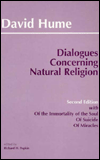Peace
 (This was an address I gave for Advent this weekend at Atlas Church, Greeley.)
(This was an address I gave for Advent this weekend at Atlas Church, Greeley.)If you want to address Peace in the scriptures, where do you start? The Bible is a bloody collection. Warfare and conflict are the norm. It seems that all the players involved have swords. Where do you begin?
As I began this study, it was shocking to me how frequently and in what ways "Peace" is elevated. It was not just the amount of times the Bible referred to Peace, but how often, at the climax of central passages and ideas, Peace is the conclusion.
The Bible speaks of Peace like health. It is a condition. It is a state of being well. The Bible is real clear that our world is sick, and its healing is described as Peace.
The Hebrew word for Peace is "Shalom," which comes from a verb meaning to "make complete" or "make sound." It is used when a building is being finished, or a debt is paid off or when something broken has been made whole. "Peace" is used in almost every book of the Bible.
The Bible calls God: "the God of Peace," "The Lord of Peace," "The King of Peace." It says, "He himself is our Shalom."
Perhaps the earliest prayer ever recorded is one, not said from a man to God, but from God to Moses. It is a benendiction which has been said millions of times over God's people for thousands of years: "The Lord bless you and keep you; The Lord make his face shine upon you and be gracious; the Lord turn his face toward you and give you Peace." (Numbers 6)
The entire Old Testament--the first half of the Bible--is a story of a war torn people (the Jews) longing for, praying for, and failing to achieve peace: failing to be united with God and see their small, sliver of a country whole. The story peaks early as the Jews come into the land of Israel, and it is God that is giving them this piece of property. But they consistently fail to take the land in the way that God is giving it. After some initial failures (see Joshua), it becomes a full-on nose dive (see Judges).
Halfway through the story, the country breaks in half. The people are at odds with each other and at odds with their God, and it is easy to destroy them. Israel is attacked by a nation to the North and a nation to the East. Many of the people are led away into slavery, and the Old Testament ends with a small remnant coming back to Jerusalem to rebuild some walls.
However, during this time of Exile there are writers--Prophets--who address the spiritual health of Israel, and begin to foresee a new day. Almost every Prophet--and there are at least a dozen--anticipate a great king who will rise to rule Israel. The ancient Hebrews called this coming King 'the Messiah,' and almost every passage of anticipation for the Messiah describes his reign, not just over that small sliver of land and its desert people, but over the whole world. His coming will not be one of military domination and the power of God destroying the walls and armies of other nations. Instead, he will come as a peace bringer. Consider:
Micah says a man will come from Bethlehem, who will be ruler over Israel "and they will live securely, for then his greatness will reach the ends of the Earth and He will be their peace." (5:1-5)
Zechariah says, "Rejoice greatly...See your king comes to you righteous and having salvation, gentle and riding on a donkey...I will take away the chariots...the war horses from Jerusalem and the battle bow will be broken. [For] He will proclaim peace to the nations. His rule will extend from sea to sea and from River to the ends of the earth." (9:9-11)
And Isaiah says a verse often quote this time of year: "every warrior's boot used in battle and every garment rolled in blood will be destined for burning, will be fuel for the fire. For to us a child is born, to us a son is given, and the government shall be on his shoulders. And he will be called Wonderful counselor, Mighty God, Everlasting Father, Prince of Peace. Of the increase of his government and peace there will be no end." Later Isaiah writes that the Messiah, "took up our infirmities and carried our sorrows, the punishment that brought us peace was [laid] upon him." (Ch. 53)
So for the prophets, this coming Messiah would not only bring peace to the whole Earth, not only restore the people of God, but would even bring peace to human relationships and wholeness to each individual. This is a bold, amazing vision, and it is at the heart of the New Testament and its picture of Jesus.
At Jesus birth, Luke says a great company of angels appeared singing, "Glory to God in the highest and on earth peace to men on whom his favor rests." (Ch. 2) Much of Jesus language and teaching display the way of peace: "Turn the other cheek," "Those who live by the sword will die by the sword," "Blessed are the peacemakers for they will inherit the earth."
At the Last Supper, Jesus promises to fill his followers with the Spirit of God and in order to describe God coming to dwell in the believer he says, "Peace I leave with you. My peace I give you." So God coming to live in men is emphasized twice by Jesus as Peace.
The last thing Jesus says to the disciples before he is arrested is, "I have told you these things so that in me you may have peace. In this world you will have trouble. But take heart! I have overcome the world." And he is taken away to be tried and crucified
Following his resurrection from the dead, the first thing Jesus says to the disciples is "Peace be with you." (Which might be appropriate given his brutal murder three days earlier.) To those who take the good news of Christ's resurrection into the world, Isaiah says, "you will go out with joy, and be lead forth with peace, the mountains and hills will break into songs before you."
The very first thing written in the entire New Testament is Paul's letter to the Galatians, and it begins this way, "Grace and peace to you from God our Father and the Lord Jesus Christ, who gave himself for our sins to rescue us from this present evil age."
God's graciousness, extended to us through Jesus has brought us peace: has made you and I complete, has made us whole, has brought "Shalom." Embracing God's grace always leads to Peace.
Because of this profound truth, listen to how Paul begins each of his letters: To the Romans, "Grace to you and peace from God our Father and the Lord Jesus Christ." His first letter to Corinth, "Grace to you and peace," His second letter to the Corinthians, "Grace to you and peace." To the Ephesians, "Grace to you and peace," Philippeans, "Grace to you and peace", Colossians, "To the saints and faithful brethren in Christ who are at Colossae: Grace to you and peace." To the church of the Thessalonians, "Grace to you and peace." His second letter to the Thessalonians, "Grace to you and peace." His first and second letter to Timothy both say "To Timothy, my true child in the faith: Grace, mercy and peace from God the Father and Christ Jesus our Lord." His letter to Titus, "To Titus, my true child in a common faith: Grace and peace from God," and to Philemon, "Grace to you and peace...I always thank my God for you as I remember you in my prayers."
Thus, in every letter Paul writes, he wants to say something important right from the outset. Hey, before we begin, before I tell you anything else--before I tell you about right doctrine, or suffering for Jesus, or the way to live beautifully, or how to fix your disfunctional situation...
Grace. Peace.
Let me remind you of the extraordinary reality in which we presently live.
Grace. Peace.
It is all that really matters: Jesus graciousness leading to peace forever.
The other New Testament writers, agree, so Peter begins his first letter, "May grace and peace be yours in the fullest measure." His second letter, "Grace and peace be multiplied to you in the knowledge of God and of Jesus our Lord." John's second letter, "Because of the truth, which lives in us and will be with us forever: Grace, mercy and peace will be with us." John's third letter, "Peace be to you." Jude's letter, "May mercy and peace and love be multiplied to you." And Revelation, the very last book in the Bible begins, "To the seven churches that are in Asia: Grace to you and peace, from Him who is and who was and who is to come."
And the final two chapters of the Bible speak of God coming to live with men, and the world "does not need the sun or the moon to shine on it, for the glory of God gives it light...and the nations [these striving, fighting, seeking their own to the bitter end, selfishly reflexive intities] will walk by [God's glorious] light... and the glory and honor of the nations will be brought into it." And the final verse of the Bible says, "The Grace of the Lord Jesus be with God's people. Amen."
Grace. Peace.
So when we come to Advent, and when we come to communion, we celebrate and identify a longing. Our longing is for Jesus to return, a longing for him to reign. For if you haven't watched any high quality cable news programming recently, this world is not filled with peace. And Christians are often not filled with Grace. The Messiah is not governing the world. So what's the story?
How is God bringing Peace to our broken, hurting, sick world?
After 9/11, I remember having a conversation with my brother, and he told me of his experience on that day. He recalled filping through the stations and landing on a station out of Mexico. He didn't stop for the commentary. He stopped because this station didn't put up filters on its content, so he saw the people jumping from buildings. He saw them hitting the ground. He saw the body parts strewn everywhere.
In reflection, he and I both affirmed that had the President got on tv that night and said, "hey its time to sign up and go kick someone's ass." We would have said, "mr. president, I've brought my own pen, thank you."
And that is our tendency right? The way things work in our world, is when someone hits you, you hit back...harder. It's a defense mechanism. If I can hit you harder than you hit me, maybe next time you won't hit me in the first place. If I can push you away then maybe I will be left alone, left safe, left...in peace.
This is the way we are preprogrammed to pursue peace: hit back.
This is also true in our relationships. If you say something rude, how do I let you know. Do I say, "Hey what you did really hurt me." Or do I look for opportunities to get even. If we haven't discovered it already, this kind of tactic doesn't work:
When I was in High school I loved the game Risk, and Iwould play it on the computer in the library with a few friends before school. Now, I wasn't very good, so I decided one day to take the program home and practice, but I quickly found a way to win without much effort. I would position myself in such a way as to get the other countries fighting each other, and once they had exhausted their resources, I would come in and wipe them out. It was easy to win, because if you can set people fighting each other, it is easy to destroy them.
 Stephen King wrote a book called Needful Things, in which he pictures a small maine town where things are normal, but like ever other town, there is bitterness, envy, and malice just under the surface. Now in the story, a devil like character moves into town, and he begins selling people fantastic items. Items that they only dream of: a pair of Elvis's glasses, a sliver of wood from the Ark, a signed Baseball card to complete a collection.
Stephen King wrote a book called Needful Things, in which he pictures a small maine town where things are normal, but like ever other town, there is bitterness, envy, and malice just under the surface. Now in the story, a devil like character moves into town, and he begins selling people fantastic items. Items that they only dream of: a pair of Elvis's glasses, a sliver of wood from the Ark, a signed Baseball card to complete a collection.Now, the salesman does not want money for these items. He wants the people to do him a favor. He'll say something like, "You know that person down the street , I want you to throw mud on her hanging white sheets." "You know the drunk down the way, I want you to slash his tires." "You know the nice lady over there, I want you to kill her dog."
And all of a sudden all the stuff just under the surface comes screaming to the top. Everyone is out to defend their precious dignity, and at the climax the streets are filled with people with guns and sabers hacking each other to bits. And the devil sits back and smiles because if you can set people fighting each other, it is easy to destroy them.
What happens when the world is shaken up a bit? What happens when the junk and poison that the world hasn't dealt with gets poked? What happens when a world Jesus created to birth children of God suddenly turns against itself. According to Christ, hitting back is a sure way to destroy yourself:
"Those who take up the sword. Will perish by the sword."
Isn't there a better way?
There is. It is the way of the cross. It is the way of coming to Jesus and--first--seeing the poison in our own lives (which by the way does not leave just because you became a Christian). It means purging ourselves of that poison at every conceivable moment in and through our lives. It means asking for over and over and over again: Grace. Grace. Grace. That your life might be one of peace.
Second, it means seeing how God deals with the poison in others, and striving as best we can to reflect him.
 Jesus does not hit back. He does not defend his Precious Dignity. He allows the world's poison to nail him naked to a stake of wood. And through his own self-surrender he brings healing, he brings life, he brings Grace to all the world.
Jesus does not hit back. He does not defend his Precious Dignity. He allows the world's poison to nail him naked to a stake of wood. And through his own self-surrender he brings healing, he brings life, he brings Grace to all the world.We live in the story of God, between the Cross and Resurrection and the Return of our great King. Jesus has done the work only he could do. He has set the healing process in motion. He has given the work to us, to draw the nations into the healing grace of his cross, to be little Christ's going into all the world, ridding ourselves of our precious dignity, ridding ourselves of our attachments to things that don't matter, ridding ourselves of the poison that has been in us a long, long time.
We are to take up our own crosses and walk in the way of Jesus for the sake of the world. We are to show the world a better way in a world full of swords. This is the way God is bringing peace: through his church reflecting its Lord, walking in the power of the Holy Spirit.
This means that we must know the grace God has shown to us, and we are to show that same grace to others.
This means we must learn to love our family and friends, and colleagues, and bosses, and neighbors, and enemies. CS Lewis says love is like math. You can't just jump into calculus. You must start with simple addition.
Perhaps we should't try and love the 9/11 hijackers just yet, maybe we should start with those who live under our own roofs first. Taking up our own crosses means we realize that this world and its pattern are passing away, and behold all things are being made new.
That is the way of grace which leads to peace.
It will not be perfectly completed until Jesus returns, but it is our role, to partner with the Holy Spirit in restoring this world in his power, until he returns to finish the job.




